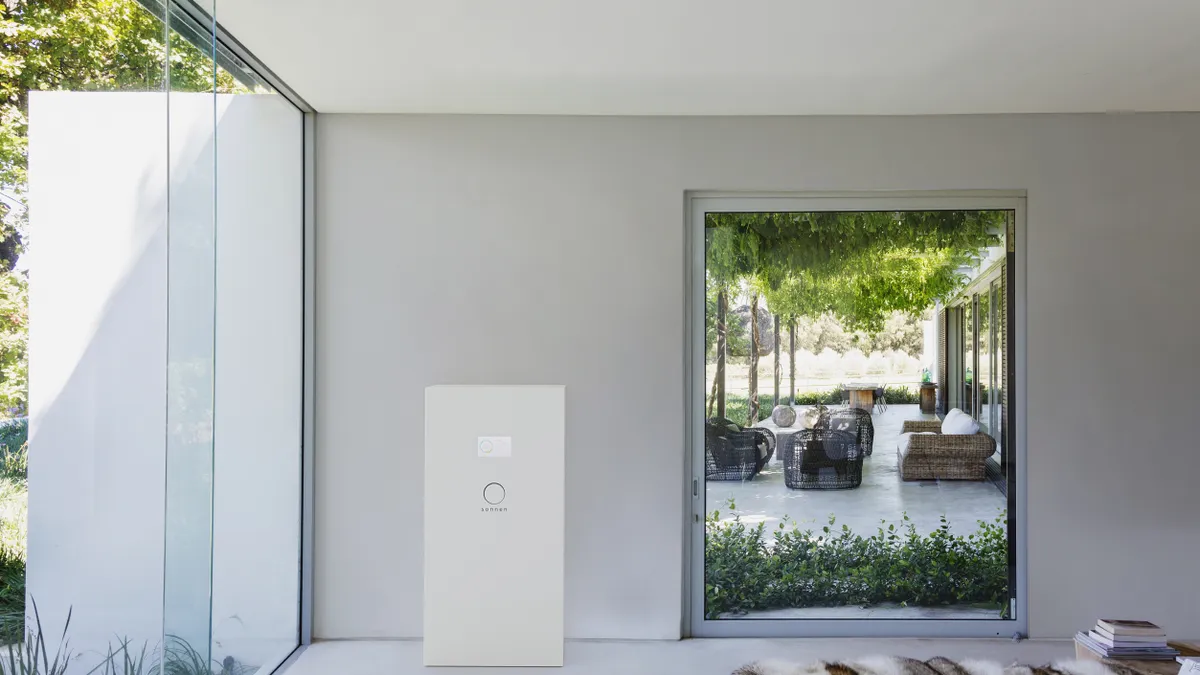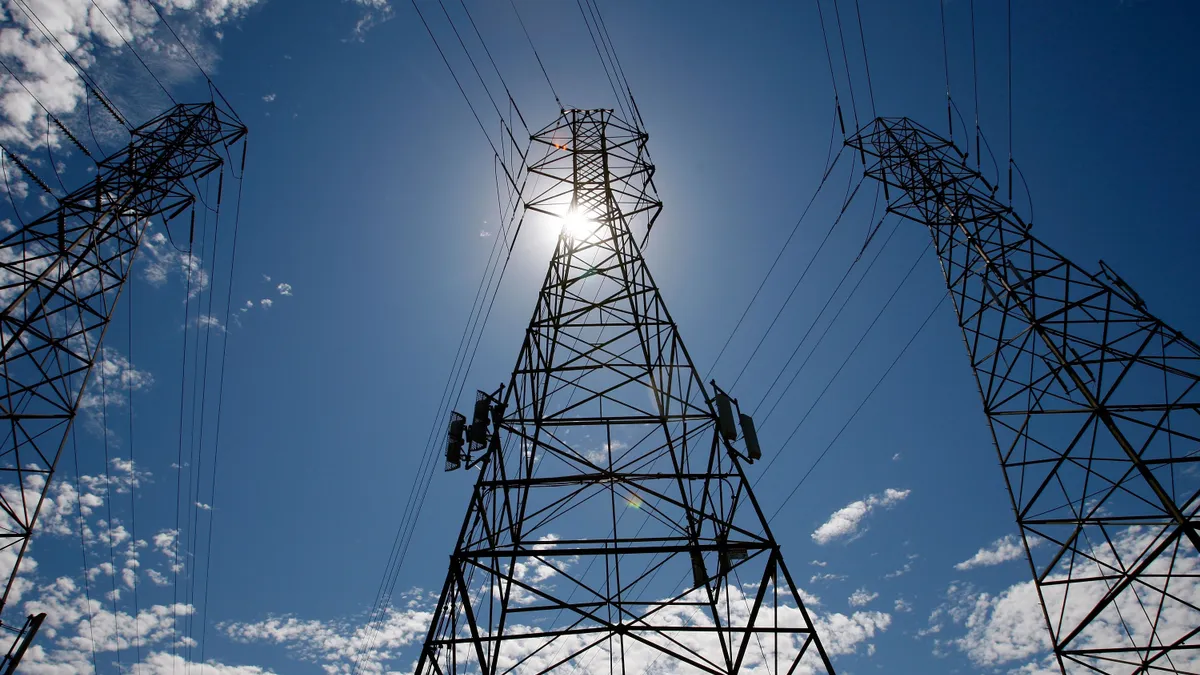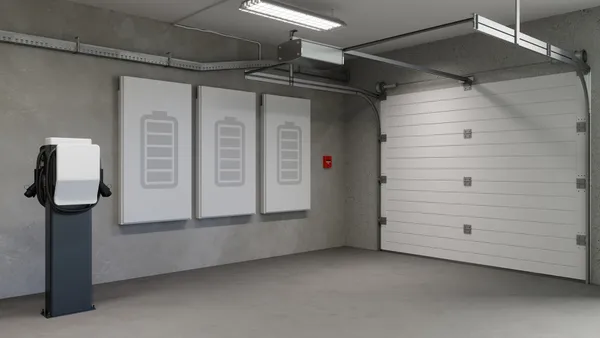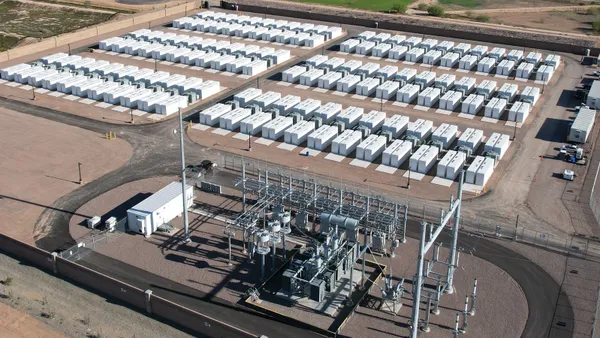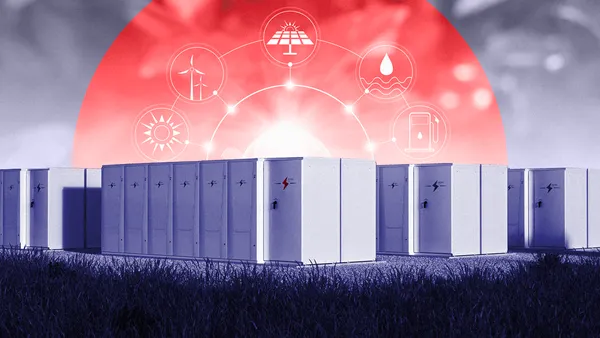Dive Brief:
-
German energy storage company Sonnen has signed a contract with an Arizona homebuilder to install energy storage systems in new homes, Greentech Media reports.
-
Sonnen has not disclosed the name of the homebuilder, but the firm usually builds 200 homes a year and could build 300 in 2018.
- The project, which is slated to start in the fourth quarter, would bundle the cost of the Sonnen storage system into mortgage payments for the home.
Dive Insight:
Sonnen says energy storage would allow the Arizona homeowners to mitigate the evening ramping problems that occur when midday solar output declines as evening demand rises. The systems would also provide peace of mind for homeowners concerned about backup power in the event of a power loss.
The company began shipping its storage systems to U.S. customers in December 2015. In February 2016, Sonnen formed partnerships with several U.S. companies and opened a headquarters office in Los Angeles.
Sonnen’s pilot project in Arizona calls for customers who move into the storage equipped houses to be automatically enrolled in the sonnenCommunity, a concept Sonnen pioneered in its German home market.
Sonnen is now trying to deploy that business model to the United States.
SonnenCommunity links solar and storage devices into a virtual grid that allows members to trade electricity among themselves and sell excess power into the wholesale market, potentially cutting the incumbent utility out of the picture.
SonnenCommunity has 8,000 members in Germany, but the company is still working out how that concept will fit in with the very different regulatory structure in the U.S.
"We have the world's largest peer to peer energy sharing platform in Germany, and we are extremely excited to expand it to the US market," Blake Richetta, SVP of Sonnen, wrote to Utility Dive in an emailed statement.
“We are the Airbnb of energy,” Boris von Bormann, former CEO of Sonnen, said last year as the company entered the U.S. market. But the U.S. is very different than Germany. In the U.S., it is as if “each state is its own country,” he said. The fragmented regulatory landscape has helped shape Sonnen’s approach to the market.
The Arizona project will provide Sonnen with market data on how a residential community interacts with the grid when it can both generate and store energy.


